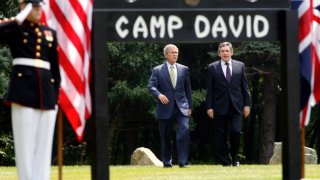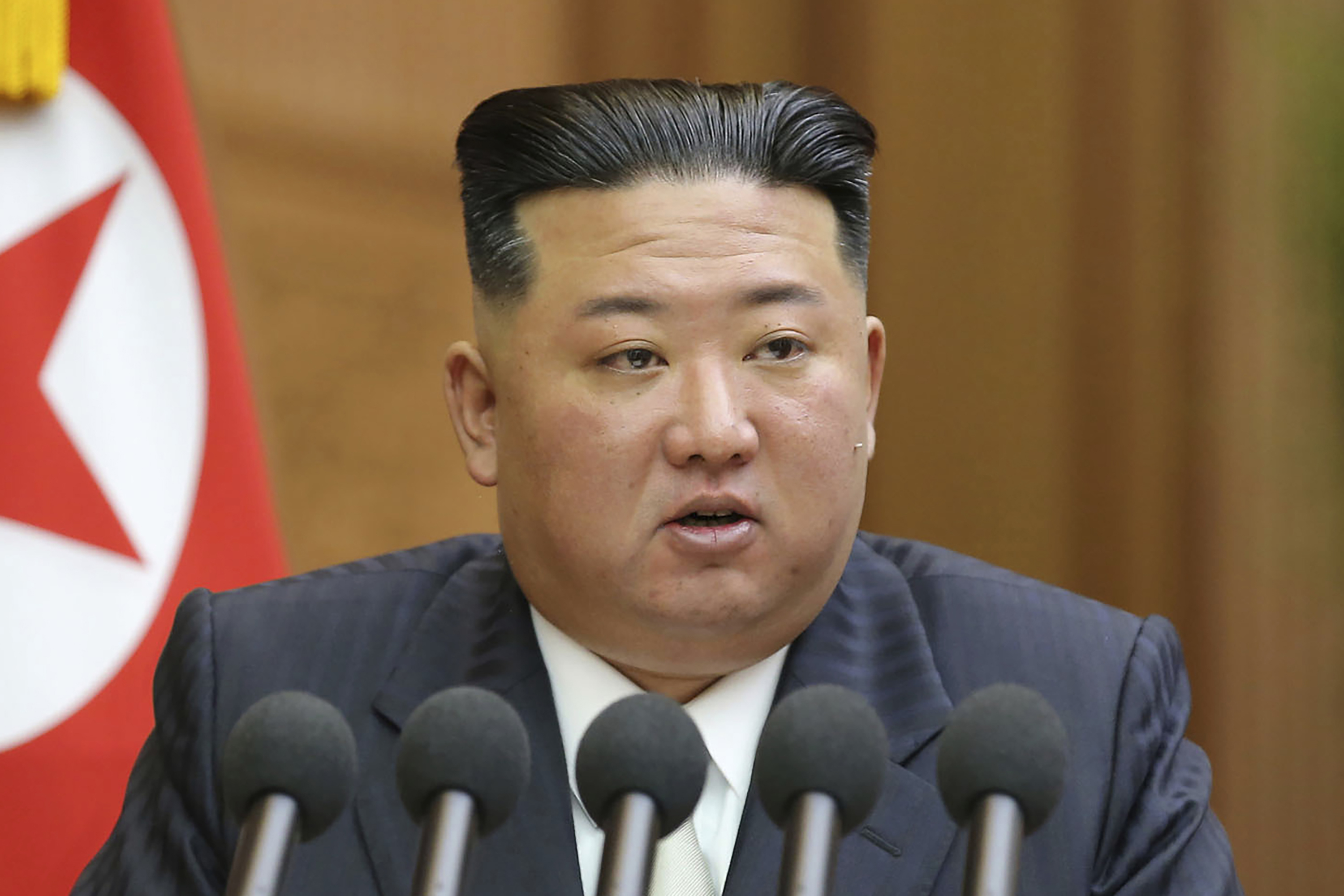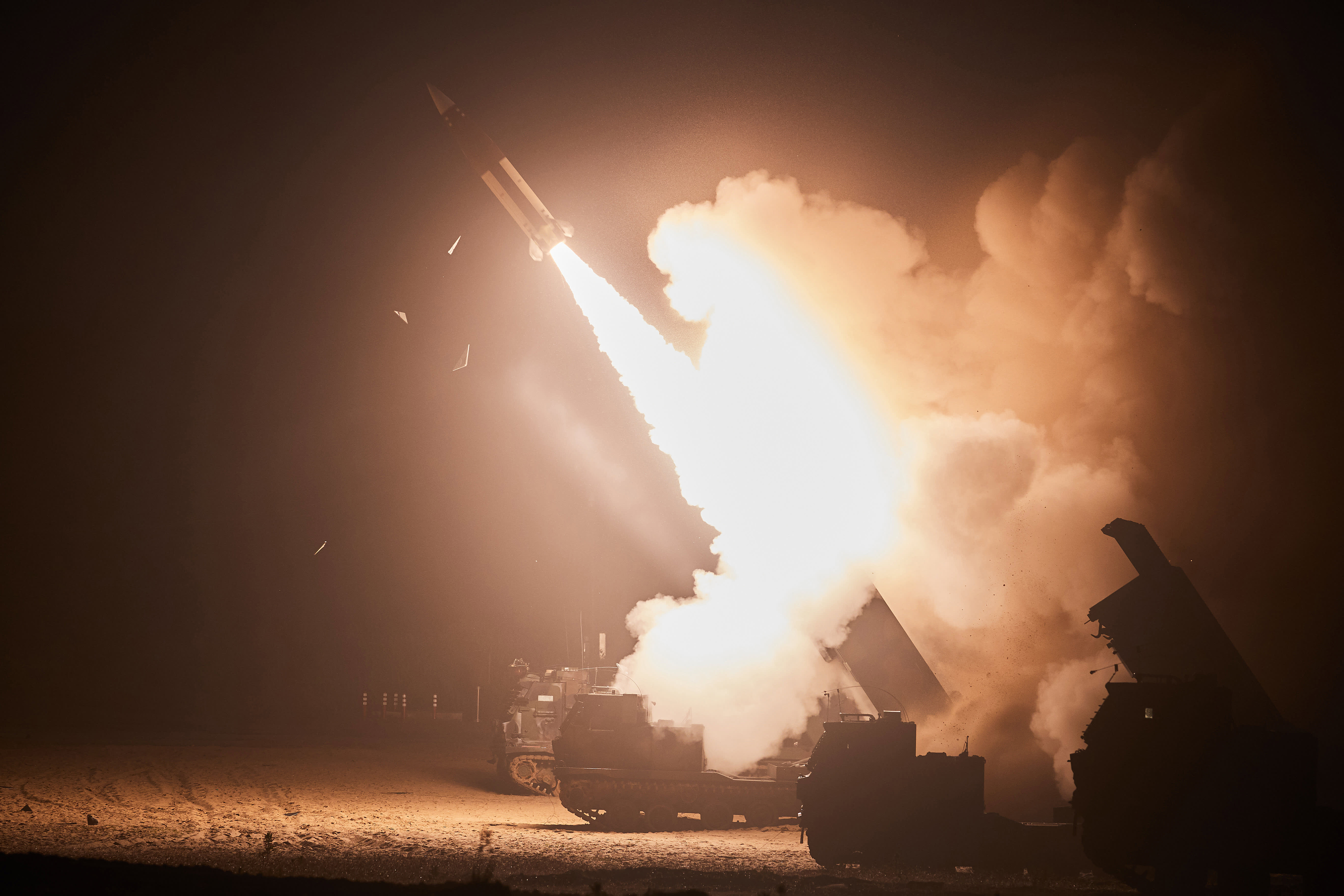
FILE – President George W. Bush, left, and British Prime Minister Gordon Brown walk to a joint press availability at Camp David, Md., July 30, 2007.
Camp David, the rustic presidential retreat in the mountains of Maryland, has been a backdrop for signal moments in U.S. foreign policy, perhaps none more notable than the peace accord President Jimmy Carter brokered between Egypt and Israel in 1978.
On Friday, President Joe Biden will reach for his own place in Camp David lore, hoping that walks on leafy trails and necktie-free talks with Japanese Prime Minister Fumio Kishida and South Korea President Yoon Suk Yeol will encourage the U.S. allies, who have been thawing their frosty relationship, to cooperate more given their shared concerns about aggression from China and North Korea.
It will be the first time that Biden has hosted world leaders at the secluded retreat nestled in Maryland’s Catoctin Mountains, about an hour’s drive northwest of the White House.
Get Tri-state area news delivered to your inbox. Sign up for NBC New York's News Headlines newsletter.
Run by the Navy, guarded by Marines and less imposing than the White House, Camp David was a deliberate choice by a president who puts a premium on face-to-face interactions with his foreign counterparts, Biden aides said.
“One of the interesting things about Camp David is that it provides a less formal venue for presidents and their visitors to really get to know each other on a one-to-one basis,” said Sarah Fling, a historian at the White House Historical Association.
British Prime Minister Winston Churchill, Soviet leader Nikita Khrushchev and Margaret Thatcher, a successor to Churchill, are just a few of the storied world figures who have spent time at Camp David at the invitation of U.S. presidents.
President Barack Obama assembled leaders of the world’s largest economies for a Group of Eight summit in 2012, the biggest foreign contingent to ever gather there.
President Donald Trump tweeted in September 2019 that he had canceled a secret meeting planned for Camp David with Taliban and Afghanistan leaders after an American soldier was among those killed in a bombing in Kabul.
To produce the Camp David Accords, Carter sought an intimate location, a place away from the press where he thought Egypt’s Anwar Sadat and Israel’s Menachem Begin would be encouraged to talk to one another. Unlike at the White House, where journalists come and go, the news media are barred from Camp David, unless they are invited to cover an event, like Friday’s summit.
Three days were set aside for the talks, but the summit lasted nearly two weeks. The Camp David Accords were signed at the White House in March 1979.
Camp David was established in 1942 during Franklin Roosevelt’s presidency and has been used by every president since.
Roosevelt had liked to relax on a presidential yacht, but the military and Secret Service started to worry about his safety on the open water during World War II. Roosevelt asked the National Park Service to identify sites within 100 miles of the White House that he could use for rest.
He chose what is now known as Camp David. He gave it the original name of Shangri-La, from James Hilton's novel “Lost Horizon.” President Dwight Eisenhower renamed it Camp David, after his grandson and father.
Roosevelt also set the precedent for hosting foreign leaders at Camp David, inviting Churchill to the retreat twice. In 1943, they discussed the Normandy invasion; Roosevelt also took the prime minister along on a fishing trip.
Eisenhower hosted Khrushchev for two days in 1959, the first time a Soviet leader had come to the United States. They watched American Western movies, among other activities.
Bill Clinton hoped to replicate Carter’s feat by inviting Israeli Prime Minister Ehud Barak and Palestinian leader Yasser Arafat to Camp David for a fresh round of Mideast peace talks in 2000. But after two weeks of talks, the summit ended without an agreement.
George W. Bush visited often, hosting an array of foreign leaders and spending Christmases with his family. Britain’s Tony Blair was first to visit the newly elected Bush there in 2001.
When reporters asked the president to describe something that he and Blair found they had in common, Bush quipped, “We both use Colgate toothpaste.”
“They're gonna wonder how you know that, George,” Blair responded.
In addition to the G-8 summit, Obama hosted a group of Persian Gulf leaders in 2015.
But Camp David is more than just a place for presidents to hold sensitive diplomatic talks with foreign leaders or ponder issues of war and peace. Its primary function is as a place for presidents, and their families, to escape Washington, a place where they can be themselves and where they can rest, relax and recharge as much as a 24/7 president is allowed to.
The 180-acre (73-hectare) retreat has a cabin, named Aspen by first lady Mamie Eisenhower, that’s reserved for the president, plus about a dozen other cabins for guests. There’s a main lodge with conference rooms, a dining room and an office for the president.
Guests have a range of indoor and outdoor amenities at their disposal, including a fitness center, bowling alley, movie theater, heated swimming pool, and tennis and basketball courts. There's also a chapel for religious services.
Carter liked to run on the trails. Ronald Reagan liked to ride horses and is the president who spent the most time at Camp David, said Fling, the historian.
“Reagan really enjoyed visiting Camp David,” she said. “He and first lady Nancy Reagan enjoyed just going and spending time together there as a couple.”
Susan Ford, President Gerald Ford’s daughter, once described it as a place where “you could go and have fun and be silly and not end up in the press.”
One presidential wedding has been held there. Bush's sister, Dorothy, married her second husband, Robert Koch, at Camp David in 1992.
Biden goes to spend time with his family. He first visited in February 2021, weeks after taking office, and trounced one of his granddaughters as they played the Mario Kart video game, according to a post on Naomi Biden Neal’s social media accounts.
Biden has returned 27 times since, spending all or part of a total of 96 days, according to Mark Knoller, a former CBS News White House correspondent who keeps presidential statistics.



